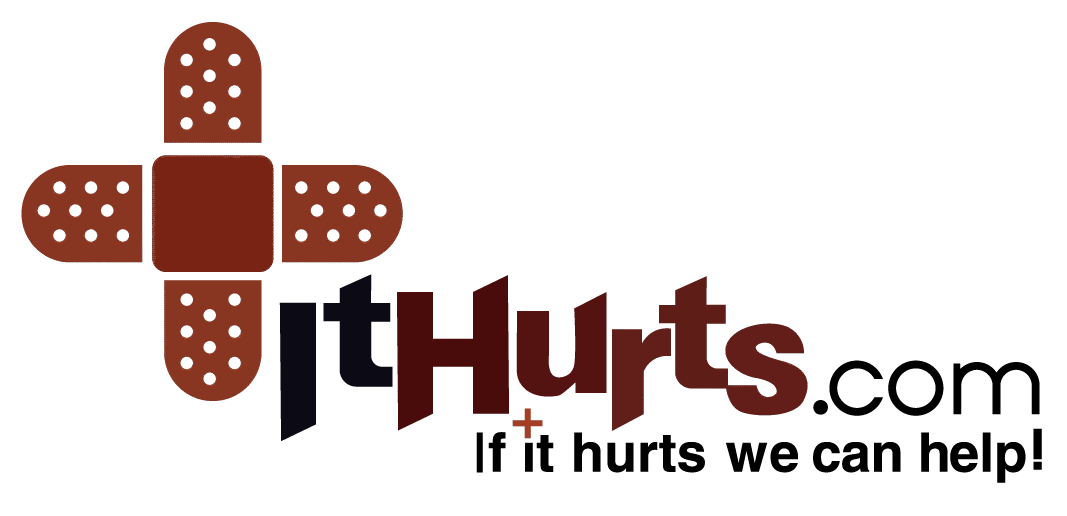Shopping Cart
CloseNo products in the cart.
Filter
closeMastering IBS Pain Management: Understanding, Preventing, and Relieving Discomfort
Author: ItHurts.com
A Comprehensive Talk on Mastering IBS Pain Management

Understanding the Basics:
Living with Irritable Bowel Syndrome (IBS) can be a challenging and often isolating experience. Characterized by abdominal pain and altered bowel habits, IBS affects millions worldwide. Managing the pain associated with IBS requires understanding its causes, physiological underpinnings, and effective strategies for prevention and relief. In this article, we’ll delve deep into IBS pain, exploring its description, causes, physiological basis, presentation, treatment options, and actionable prevention strategies.
Description of IBS Pain
IBS pain is often localized in the abdomen but varies widely in presentation, including:
- Cramping Pain: Commonly described as spasmodic or twisting, this pain often worsens after meals and improves after bowel movements.
- Sharp, Stabbing Pain: Sudden and intense, this type can appear during IBS flare-ups and may feel incapacitating.
- Dull, Persistent Ache: Some individuals report a constant, nagging discomfort in the abdomen, especially during periods of stress or poor diet.
- Bloating-Related Discomfort: This pain stems from gas build-up, causing a feeling of tightness or heaviness in the stomach.
The intensity ranges from mild discomfort to severe pain that interferes with daily life, and it can occur anywhere in the lower abdomen, though the exact location may shift over time.
Causes of IBS Pain
IBS pain arises from several factors, including:
- Altered Gut Motility: Irregular intestinal contractions can lead to cramping and bloating.
- Visceral Hypersensitivity: People with IBS often have a heightened sensitivity to pain signals from the digestive tract.
- Gut-Brain Axis Dysregulation: Stress and anxiety can exacerbate IBS symptoms by disrupting communication between the brain and gut.
- Dietary Triggers: Foods high in fat, caffeine, or fermentable carbohydrates (FODMAPs) often worsen symptoms.
- Microbiome Imbalance: An overgrowth or imbalance of gut bacteria can contribute to IBS-related pain.
Underlying Reasons for IBS Pain
The physiological and anatomical basis for IBS pain lies in several interconnected factors:
- Muscle Strain in the Gut Wall: Intestinal muscles contract abnormally, leading to painful spasms.
- Nerve Sensitivity: Heightened nerve responses amplify the sensation of pain, even to normal digestive processes.
- Inflammation: Although IBS isn’t traditionally considered an inflammatory condition, subtle inflammation may play a role in pain exacerbation.
- Gut Microbiota Disruption: Imbalances in beneficial and harmful gut bacteria can produce excess gas and irritate the gut lining.
These factors combine to create the hallmark abdominal pain of IBS, often worsened by psychological stress or poor dietary habits.
Presentation of IBS Pain
IBS pain can manifest differently in individuals but typically involves:
- Timing: Pain often peaks after meals and improves after bowel movements.
- Bowel Habit Changes: Accompanying diarrhea, constipation, or alternating patterns.
- Trigger Sensitivity: Pain increases with the consumption of trigger foods or during stressful situations.
- Localization: Pain is usually in the lower abdomen but may shift throughout the gastrointestinal tract.
These presentations can fluctuate over time, making IBS a highly individualized condition.
Treatment and Relief for IBS Pain
a. Dietary Adjustments
- Adopt a Low-FODMAP Diet: Avoid foods like onions, garlic, beans, and high-fructose fruits.
- Stay Hydrated: Drink at least 8 glasses of water daily to ease constipation.
- Monitor Triggers: Maintain a food diary to identify personal trigger foods.
b. Stress Management Techniques
- Mindfulness and Meditation: Techniques like yoga and deep breathing help reduce stress-related symptoms.
- Cognitive Behavioral Therapy (CBT): Effective in addressing anxiety linked to IBS.
c. Physical Relief
- Gentle Exercises: Activities like walking or stretching can aid digestion and relieve bloating.
- Abdominal Massage: Use circular motions to reduce cramping.
- Heat Therapy: Applying a warm compress to the abdomen can soothe pain.
d. Medical Interventions
- Antispasmodics: Medications like dicyclomine help reduce muscle spasms.
- Probiotics: Improve gut microbiome balance to alleviate symptoms.
- Fiber Supplements: Psyllium husk can ease constipation, but avoid insoluble fibers if symptoms worsen.
- Prescription Treatments: For severe cases, medications like rifaximin or eluxadoline may be prescribed.
Emerging Research: What’s Next for IBS?
Exciting developments in IBS research are giving doctors hope for better treatments in the future. These include:
- Targeted Microbiome Therapies: Precision probiotics or microbiome modulation therapies.
- Gut-Brain Neuromodulation: Devices that regulate nerve activity in the gut.
- Biomarkers for Diagnosis: Blood or stool tests to identify IBS more accurately.
Doctors believe that continued advancements will make IBS management more effective and individualized.
Actionable Steps for Preventing IBS Pain
To minimize the risk of IBS flare-ups:
a. Dietary Strategies
- Plan meals with balanced nutrients and avoid large, heavy meals.
- Gradually increase fiber intake to avoid bloating.
- Limit caffeine, alcohol, and processed foods.
b. Stress Management
- Practice daily relaxation techniques such as progressive muscle relaxation.
- Incorporate regular physical activity like swimming or cycling.
- Seek professional counseling or join support groups if IBS affects mental well-being.
c. Maintain a Healthy Gut
- Include fermented foods like yogurt and kefir in your diet.
- Avoid unnecessary antibiotic use to protect beneficial gut bacteria.
d. Ergonomic and Lifestyle Adjustments
Avoid tight clothing that constricts the abdomen.
Stick to a consistent meal schedule to support digestive regularity.
Prioritize sleep, as poor sleep can exacerbate symptoms.

Final Thoughts:
IBS pain is multifaceted, with causes rooted in gut sensitivity, dysregulated motility, and psychosocial factors. By combining dietary changes, stress management, and medical interventions, individuals can effectively manage and prevent IBS pain. Scientific research reinforces the value of a holistic approach, emphasizing the interplay between diet, mental health, and gut microbiota.
Proactively adopting these strategies can empower individuals to regain control over their symptoms and lead a more comfortable, fulfilling life. Remember, small daily changes can yield significant improvements in IBS management.
Take action today: Start a food diary, try a mindfulness practice, or consult a healthcare provider for a personalized management plan. Your journey to pain relief begins now!
Footnotes
- Camilleri, M. (2022). “Visceral Pain in IBS.” Nature Reviews Gastroenterology & Hepatology.
- Staudacher, H.M., et al. (2017). “Efficacy of Low-FODMAP Diet in IBS.” Gastroenterology.
- Ford, A.C., et al. (2014). “Probiotics for IBS Treatment.” The American Journal of Gastroenterology.
ItHurts.com is your ally in your endeavor to live pain-free. We offer guidance, resources, and community support to address chronic pain, emotional stress, and physical discomfort. Discover insightful articles, product reviews, recommendations and shared experiences to empower your journey to better health. Remember, if it hurts, we can help!
Related Products
No posts found!
Related Blogs
No posts found!
